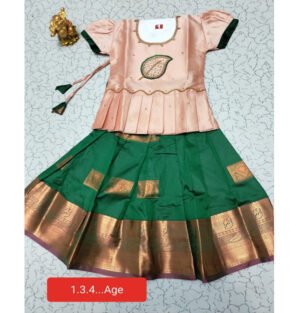No products in the cart.
The Jungle Book (India-book)
₹ 199.00
In stock
PID: 9780143457534
Confirm before buying
SKU:
9780143457534
Category: Books
Tags: Mowgli character in The Jungle Book, Mowgli's adventures, Rudyard Kipling The Jungle Book, The Jungle Book adaptations, The Jungle Book analysis, The Jungle Book and wildlife, The Jungle Book characters, The Jungle Book history, The Jungle Book lessons, The Jungle Book modern relevance, The Jungle Book PDF, The Jungle Book quotes, The Jungle Book review, The Jungle Book setting, The Jungle Book significance, The Jungle Book stories, The Jungle Book summary, The Jungle Book symbolism, The Jungle Book themes, The Jungle Book themes of nature
The Jungle Book
The Jungle Book, written by Rudyard Kipling and first published in 1894, is a beloved collection of stories that introduces readers to the adventures of Mowgli, a young boy raised by wolves in the jungles of India. Through vivid storytelling and rich characters, Kipling explores themes of friendship, survival, and the complex relationship between humans and nature.
The Story of Mowgli
The most famous story within The Jungle Book is that of Mowgli, who is found as a baby by a wolf pack and adopted as one of their own. Under the guidance of his wolf parents and the wise panther Bagheera, Mowgli learns the ways of the jungle. He forms strong bonds with his animal friends, including the lovable bear Baloo, who teaches him the “Bare Necessities” of life.
However, Mowgli’s journey is not without challenges. The fearsome tiger Shere Khan poses a constant threat, viewing Mowgli as a human who must be eliminated. This conflict between Mowgli and Shere Khan serves as a central tension in the narrative, highlighting the struggles between man and beast.
Themes of Nature and Identity
Throughout the stories, Kipling delves into themes of identity, belonging, and the struggle between civilization and the wild. Mowgli’s adventures illustrate the delicate balance between respecting nature and the innate human instinct to dominate it. As he navigates the jungle, Mowgli learns valuable life lessons about loyalty, courage, and the importance of community.
Kipling’s portrayal of the jungle is both enchanting and treacherous, reflecting the beauty and dangers of nature. The stories also serve as a commentary on British colonialism, showcasing the tension between different cultures and the importance of understanding and coexistence.
Adaptations and Legacy
Over the years, The Jungle Book has been adapted into numerous films, animated features, and stage productions, each bringing its interpretation to Kipling’s timeless tales. Disney’s animated adaptation in 1967 remains particularly popular, introducing Mowgli’s adventures to new generations.
Conclusion
In conclusion, The Jungle Book is more than just a collection of stories; it is a profound exploration of the natural world and the human experience. Through Mowgli’s journey, Kipling invites readers to reflect on their place in the world and the importance of harmony with nature. The enduring appeal of The Jungle Book continues to resonate, making it a classic that remains relevant across cultures and generations.
Only logged in customers who have purchased this product may leave a review.
-
₹ 1,840.00
-
Top Dog is Sick – Ladybird Readers Starter Level 5 (India-book)
₹ 350.00Rated 0 out of 5(0)PID: 9780241393710
Confirm stock before buying
₹ 350.00 -
₹ 1,774.00
-
₹ 1,099.00 – ₹ 1,150.00
-
₹ 1,289.00
-
Oppo Reno 10 Pro Plus 5g 12/256
₹ 54,999.00Rated 0 out of 5(0)OppoReno 10 Pro PlusHighlights- 12 GB RAM | 256 GB ROM
- 17.02 cm (6.7 inch) Full HD+ Display
- 50MP + 32MP + 8MP | 32MP Front Camera
- 4600 mAh Battery
- Snapdragon 778G 5G Processor
₹ 54,999.00









Reviews
There are no reviews yet.